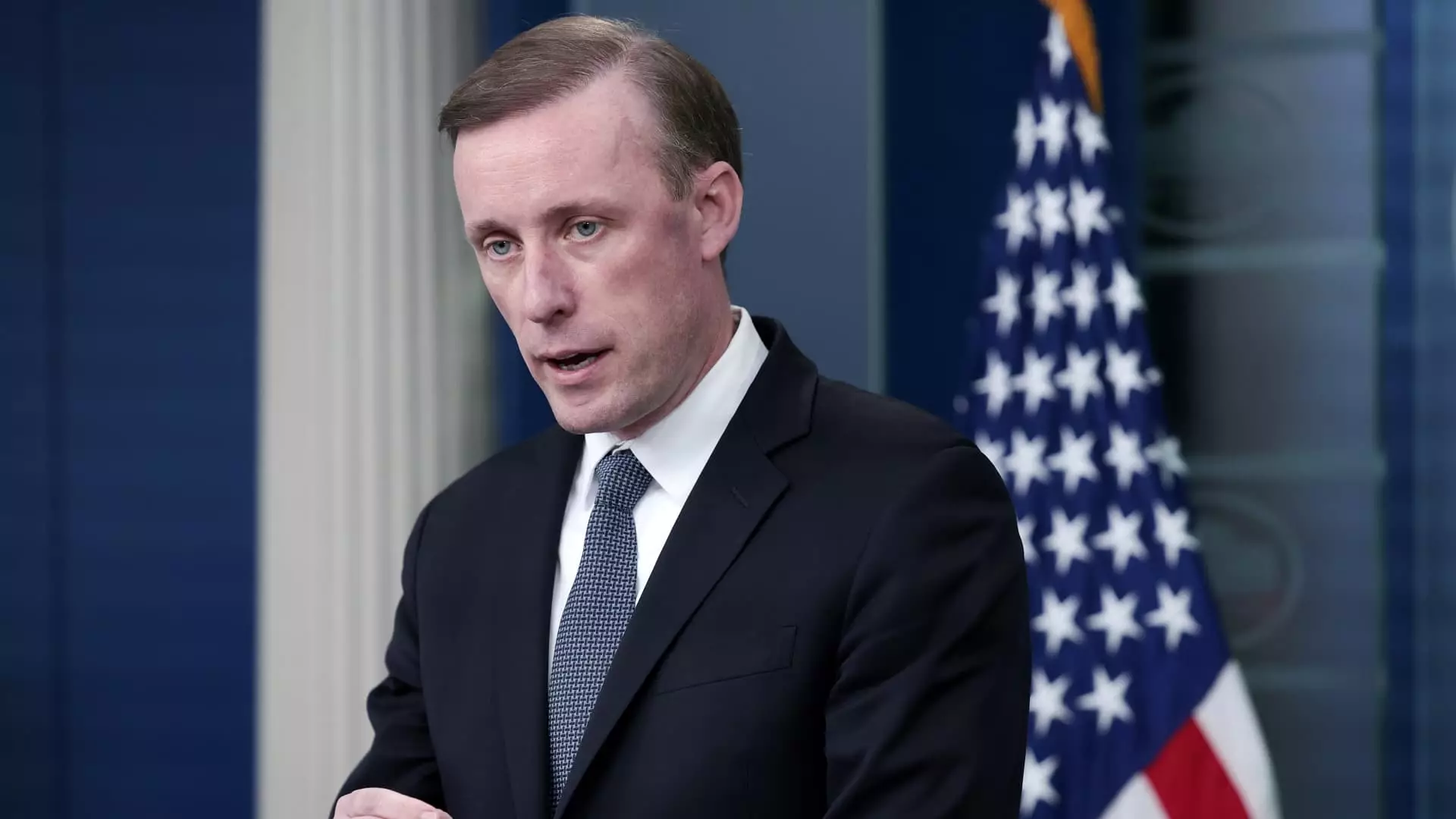In a recent interview, National Security Adviser Jake Sullivan affirmed that the United States is prepared to take further military action against Iran-backed groups. This declaration has raised concerns and heightened tensions in the already volatile region. Although Sullivan emphasized that the U.S. is not seeking a wider conflict, the prospect of additional strikes has left the situation in the Middle East uncertain and unpredictable.
Sullivan stated that the U.S. will respond forcefully whenever American forces are attacked or their people are killed. Over the past few months, the U.S. has already carried out retaliatory strikes in response to such incidents. However, these recent strikes are not the end of the president’s ongoing military response. The intention is to continue sending a clear message that the United States will not tolerate attacks on its forces.
The question of whether the U.S. will conduct strikes inside Iran remains unanswered. When asked about it, Sullivan neither confirmed nor denied the possibility. This vagueness only serves to heighten the tension and speculation surrounding the region’s future. The United States should provide clarity to ensure transparency and alleviate concerns among its allies and the international community.
While the United States is committed to responding forcefully to attacks, Sullivan assured that the Biden administration is not seeking a wider war in the Middle East. The focus is on preventing further escalation and achieving stability in the region. However, recent actions, including strikes against Iran-backed groups, indicate a willingness to engage militarily if necessary. It is crucial for the administration to clearly define its strategy and goals to avoid misunderstandings or unintended consequences.
Following a drone strike on an American base in northeastern Jordan that claimed the lives of three U.S. troops, the U.S. launched retaliatory strikes against more than 85 targets in Iraq and Syria. These strikes were aimed at Iran’s Revolutionary Guard and the militants it supports. In a separate incident, the U.S. and Britain led attacks against 36 Houthi targets in Yemen. These actions illustrate the United States’ determination to counter Iran-backed activities that threaten regional stability.
Sullivan categorizes the conflict unfolding in the Middle East as “distinct but related challenges.” While efforts have been made to prevent the situation from further deteriorating, the interconnectedness of these challenges makes it challenging to contain the spreading conflict. The international community must work together to find diplomatic solutions that address the root causes and prevent further escalation.
Iran has repeatedly denied involvement in the drone strike that triggered the recent U.S. retaliatory strikes. They maintain that militant groups in the region are acting independently. However, if Iranian-backed forces were to carry out additional attacks on U.S. forces, Sullivan confirmed that the U.S. would respond accordingly. This raises concerns about the potential for a dangerous cycle of retaliation and counter-attacks that could further destabilize the region.
As tensions continue to mount, it is crucial for the international community to come together and find ways to de-escalate the situation. Diplomatic efforts should be prioritized to prevent further military action and protect innocent lives caught in the crossfire. Open lines of communication and cooperation are essential to promoting stability and resolving conflicts.
The United States’ decision to intensify military action against Iran-backed groups has undoubtedly raised tensions in the Middle East. While the U.S. clarifies its position regarding strikes inside Iran, the international community anxiously awaits further developments. It is crucial for all parties involved to prioritize diplomacy and seek peaceful solutions to prevent a wider conflict that could have devastating consequences for the region and the world at large.

Leave a Reply